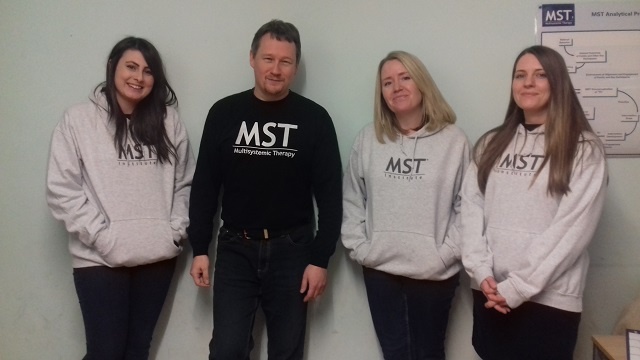This young boy was headed to placement, but MST helped him remain in the home
Kyle* made it clear to his parents that they had taken “everything away” from him and didn’t understand him. He took out his anger by getting into trouble. Stealing, joy-riding, using drugs, hanging out with friends who were bad influences. And the police constantly knocking on the door.
Kyle’s parents sought help from four different services that achieved different levels of success. But at the end of the day, Kyle showed little improvement, the police kept arriving with the boy moving closer and closer to placement. The mother remembers “the worst was the feeling you had failed as a parent that you hadn’t done enough, and this was our fault.”

Members of the Action for Children Wigan MST team, above




